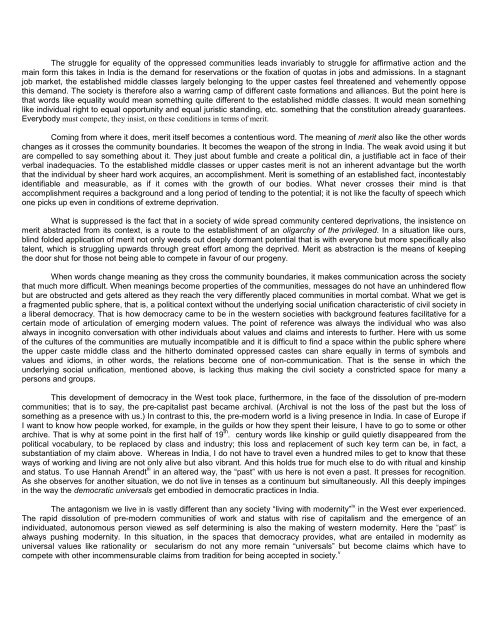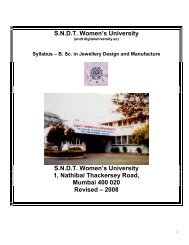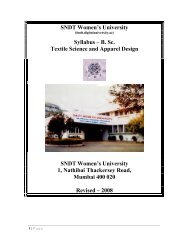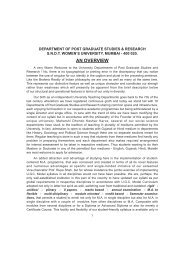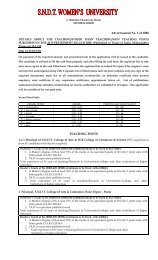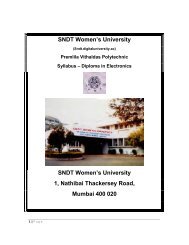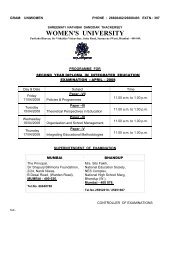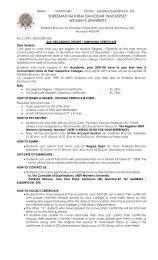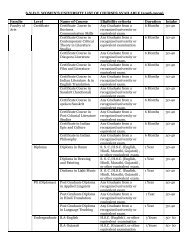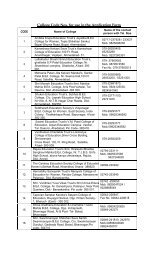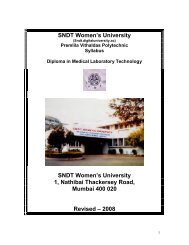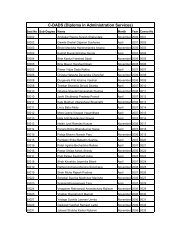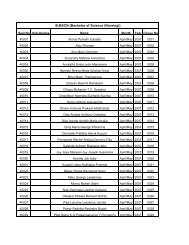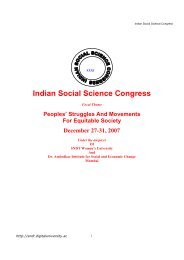XXXI Abstracts Part 1 page 1-189
XXXI Abstracts Part 1 page 1-189
XXXI Abstracts Part 1 page 1-189
Create successful ePaper yourself
Turn your PDF publications into a flip-book with our unique Google optimized e-Paper software.
The struggle for equality of the oppressed communities leads invariably to struggle for affirmative action and the<br />
main form this takes in India is the demand for reservations or the fixation of quotas in jobs and admissions. In a stagnant<br />
job market, the established middle classes largely belonging to the upper castes feel threatened and vehemently oppose<br />
this demand. The society is therefore also a warring camp of different caste formations and alliances. But the point here is<br />
that words like equality would mean something quite different to the established middle classes. It would mean something<br />
like individual right to equal opportunity and equal juristic standing, etc. something that the constitution already guarantees.<br />
Everybody must compete, they insist, on these conditions in terms of merit.<br />
Coming from where it does, merit itself becomes a contentious word. The meaning of merit also like the other words<br />
changes as it crosses the community boundaries. It becomes the weapon of the strong in India. The weak avoid using it but<br />
are compelled to say something about it. They just about fumble and create a political din, a justifiable act in face of their<br />
verbal inadequacies. To the established middle classes or upper castes merit is not an inherent advantage but the worth<br />
that the individual by sheer hard work acquires, an accomplishment. Merit is something of an established fact, incontestably<br />
identifiable and measurable, as if it comes with the growth of our bodies. What never crosses their mind is that<br />
accomplishment requires a background and a long period of tending to the potential; it is not like the faculty of speech which<br />
one picks up even in conditions of extreme deprivation.<br />
What is suppressed is the fact that in a society of wide spread community centered deprivations, the insistence on<br />
merit abstracted from its context, is a route to the establishment of an oligarchy of the privileged. In a situation like ours,<br />
blind folded application of merit not only weeds out deeply dormant potential that is with everyone but more specifically also<br />
talent, which is struggling upwards through great effort among the deprived. Merit as abstraction is the means of keeping<br />
the door shut for those not being able to compete in favour of our progeny.<br />
When words change meaning as they cross the community boundaries, it makes communication across the society<br />
that much more difficult. When meanings become properties of the communities, messages do not have an unhindered flow<br />
but are obstructed and gets altered as they reach the very differently placed communities in mortal combat. What we get is<br />
a fragmented public sphere, that is, a political context without the underlying social unification characteristic of civil society in<br />
a liberal democracy. That is how democracy came to be in the western societies with background features facilitative for a<br />
certain mode of articulation of emerging modern values. The point of reference was always the individual who was also<br />
always in incognito conversation with other individuals about values and claims and interests to further. Here with us some<br />
of the cultures of the communities are mutually incompatible and it is difficult to find a space within the public sphere where<br />
the upper caste middle class and the hitherto dominated oppressed castes can share equally in terms of symbols and<br />
values and idioms, in other words, the relations become one of non-communication. That is the sense in which the<br />
underlying social unification, mentioned above, is lacking thus making the civil society a constricted space for many a<br />
persons and groups.<br />
This development of democracy in the West took place, furthermore, in the face of the dissolution of pre-modern<br />
communities; that is to say, the pre-capitalist past became archival. (Archival is not the loss of the past but the loss of<br />
something as a presence with us.) In contrast to this, the pre-modern world is a living presence in India. In case of Europe if<br />
I want to know how people worked, for example, in the guilds or how they spent their leisure, I have to go to some or other<br />
archive. That is why at some point in the first half of 19 th . century words like kinship or guild quietly disappeared from the<br />
political vocabulary, to be replaced by class and industry; this loss and replacement of such key term can be, in fact, a<br />
substantiation of my claim above. Whereas in India, I do not have to travel even a hundred miles to get to know that these<br />
ways of working and living are not only alive but also vibrant. And this holds true for much else to do with ritual and kinship<br />
and status. To use Hannah Arendt iii in an altered way, the “past” with us here is not even a past. It presses for recognition.<br />
As she observes for another situation, we do not live in tenses as a continuum but simultaneously. All this deeply impinges<br />
in the way the democratic universals get embodied in democratic practices in India.<br />
The antagonism we live in is vastly different than any society “living with modernity” iv in the West ever experienced.<br />
The rapid dissolution of pre-modern communities of work and status with rise of capitalism and the emergence of an<br />
individuated, autonomous person viewed as self determining is also the making of western modernity. Here the “past” is<br />
always pushing modernity. In this situation, in the spaces that democracy provides, what are entailed in modernity as<br />
universal values like rationality or secularism do not any more remain “universals” but become claims which have to<br />
compete with other incommensurable claims from tradition for being accepted in society. v


